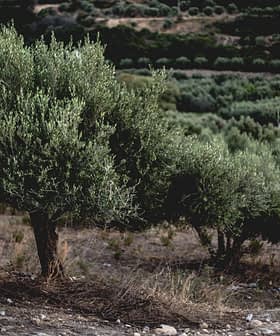While Brazil isn’t widely known as an olive oil producer, a new initiative might just change that — not through the scale of its olive oil production, however, but as a result of an innovative cause-driven effort called Social Trees.
The goal of the initiative is to support youth education in the poor communities of Brazil’s southern Rio Grande do Sul region. To achieve this, Social Trees will try to raise funds to plant between 7,000 and 35,000 olive trees (likely Arbequina, Arbosana, Koroneiki and/or Picual varietals, all which have been successfully grown and cultivated in the region), from which extra virgin olive oil will be produced and sold. 100 percent of the profits will then go toward local social projects, and, in theory, do so over the course of at least 70 years (considered an orchard’s average production time).
The effort is led by Leonardo Dutra, who specializes in agribusiness and has experience in the management and marketing development of Brazil’s agro-industries. He is supported by a diverse group, which includes olive oil producers from Brazil, Italy and Portugal, and the project is seeking donations through the crowdfunding site, Indiegogo.
The initiative could potentially benefit more than just Rio Grande do Sul’s youth by also employing locals to assist with production, transportation, orchard maintenance, and as technical consultants for location selection, implementation and maintenance, among other possible jobs.
Social Trees could get a boost from Brazil’s steady increase in olive oil consumption, which is born out of an upturn in the country’s economy and growing interest in healthier foods.
Dutra explained, “Brazil has experienced an extraordinary social and economic development from 1995 to 2013. In general, the population gained purchasing power.” He added, “the result of this process was the inclusion of new habits in the country, such as the consumption of wine and (of) olive oil.”
In fact, since 1990/1991, olive oil consumption in Brazil has gone from 13.5 metric tons annually to 66.5 tons in 2014/2015. While Dutra cautions that consumption may slow due to the country’s current economic crisis, he believes it will still continue to grow. Indeed, given that some 85 percent of Brazil’s olive oil is imported from Europe, the country is poised to contribute to its own internal demand no matter the rate at which it grows.
Dutra also thinks it’s possible for the project’s impact to reach beyond just the local Rio Grande do Sul region, and even beyond Brazil. “We believe that the initiative has the potential to add value to the oil production in Brazil and worldwide.”
And ideally they won’t have to go at it alone. “We hope that the global olive oil industry will help us in this endeavor,” he said, adding that he’s open to the possibility that it could “benefit the development of this industry as a whole.”








